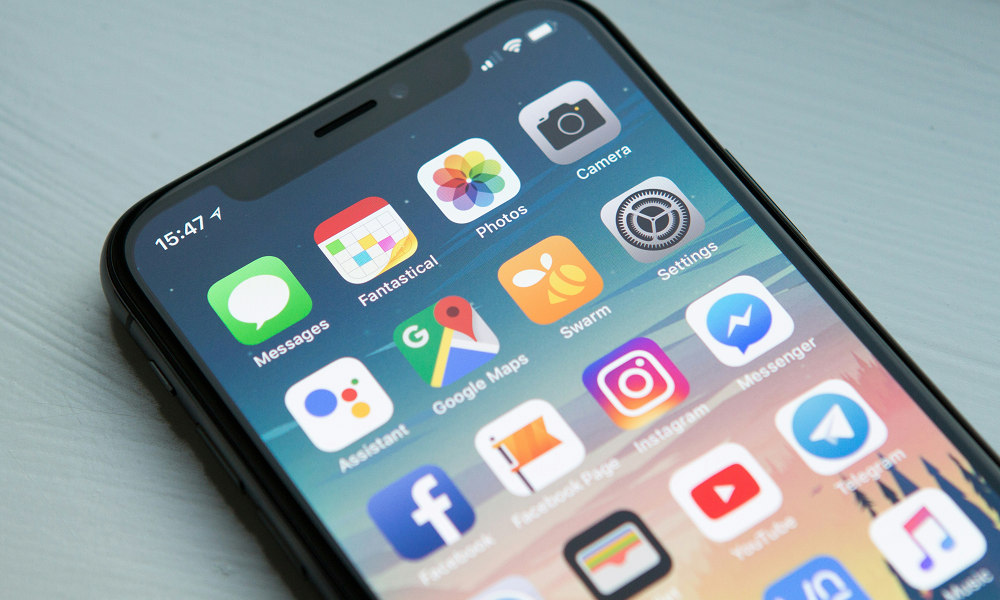Reviews
A Beginner Guide to Mobile App Development Services: The Main Stages and Challenges

People are much more likely to use cell phones than laptops to order a service or just go online. This is not surprising because our phones are always close by. In 2021, the number of app downloads reached 230 billion. This is a great opportunity for startups and businesses to break into the market with their product.
In this guide, we will delve into various aspects of mobile app development. We talk about what you should consider before applying for app development services. We’ll also discuss the key stages involved in the process and compare different types of app development.
What To Know Before Applying for Mobile Development Services
Before contacting mobile application development service providers, there’s information you should collect about your own app. Why would you do that? You’ll clearly define project goals and avoid unnecessary redesigns. Here are the points to consider:
- Articulate your objective. Define what user problem your app intends to solve. This clarity will guide the entire development process.
- Identify your target audience. Understand who will be using your app. Research their needs and pain points to tailor the app’s features.
- Set specific goals. Determine key performance indicators for success. Do you want to improve engagement levels or increase revenue?
- Be transparent about your budget. Provide an estimate of how much you can invest in the project. This helps the development team align their efforts with your financial constraints.
- Set realistic expectations. Establish a feasible timeline considering app complexity.
- Platform proficiency. Assess the development company’s experience with your specific platform—whether it’s iOS, Android, or cross-platform solutions.
- Ongoing maintenance. Discuss how the development company will handle app updates and bug fixes after launch.
The Key Stages of Mobile Application Development Services
As you have collected the info on your project, let’s talk about mobile application development service. Here is a detailed breakdown of the key stages:
| Stage | Description | Activities | Tools |
| Planning | Define the project scope and objectives. | Requirement gathering, project scoping, and resource allocation | JIRA, Trello, Asana |
| Design | Create the user interface and user experience designs. | Wireframing, prototyping, UI/UX design | Sketch, Figma, Adobe XD |
| Development | Build the app according to the design and requirements. | Coding, integration, and backend development | Android Studio, GitHub |
| Testing | Identify and fix bugs and ensure the app functions as intended. | Unit testing, system testing, user acceptance testing | Selenium, TestFlight |
| Deployment | Launch the app to app stores and make it available to users. | Deployment to App Store/Google Play, monitoring | App Store Connect, Google Play Console |
| Maintenance | Provide ongoing support and updates. | Bug fixes, updates, feature enhancements | Bugzilla |
How Much Does Mobile App Development Take?

The time required for app development service providers can vary based on several factors:
- App complexity. More complex apps with advanced features take longer to develop.
- Platform choice. Developing for multiple platforms (iOS and Android) may extend the timeline.
- Design requirements. High-fidelity, custom designs can add to the development time.
- Development team size. Larger teams may complete the project faster. However, this can introduce coordination challenges.
- Testing and quality assurance. You can’t miss the testing phases. But ensuring app quality extends the timeline.
- Project management efficiency. Good management can streamline development and minimize delays.
The Types of Mobile App Development
Though you don’t provide mobile app development services, understanding the different types is crucial. Here’s a comparison of the four main types of app development:
| Type | Description | Pros | Cons |
| Native app development | Apps developed specifically for a single platform (iOS or Android) | Optimal performance, full access to device features | Higher development costs, separate codebases |
| Hybrid app development | Apps built using a single codebase that runs on multiple platforms | Cost-effective, faster development | May have performance issues, limited access to device features |
| Cross-platform app development | Apps developed using frameworks that allow simultaneous deployment on multiple platforms | Broad reach, shared codebase | Performance may vary, framework limitations |
| Progressive web app development | Apps that function as websites but offer app-like experiences, accessible through web browsers | Easy updates, accessible on any device | Limited access to device hardware, offline functionality may be restricted |
The Bottom Line
Mobile app development is all about planning. Those who can manage their budgets and other resources always finish the project, no matter how complex it is. Whether you are considering professional development services or freelance, understanding the development process is crucial. It gives you control, confidence, and guarantees you won’t get scammed by people who just want to get money out of you.

-

 World3 days ago
World3 days agoEthiopian volcano erupts for first time in thousands of years
-

 Legal1 week ago
Legal1 week agoMichigan man JD Vance sentenced to 2 years for threatening Trump and JD Vance
-

 Legal1 week ago
Legal1 week agoWoman in critical condition after being set on fire on Chicago train
-

 World1 week ago
World1 week agoHurricane Melissa registered 252 mph wind gust, breaking global record
-

 Legal6 days ago
Legal6 days agoSuspect in San Diego stabbing shot by authorities after fleeing into Mexico
-

 Legal1 week ago
Legal1 week ago1 dead, 2 injured in shooting at Dallas Walmart parking lot
-

 Health6 days ago
Health6 days agoMarburg virus outbreak in Ethiopia grows to 6 confirmed cases
-

 Legal5 hours ago
Legal5 hours agoUtah Amber Alert: Jessika Francisco abducted by sex offender in Ogden




